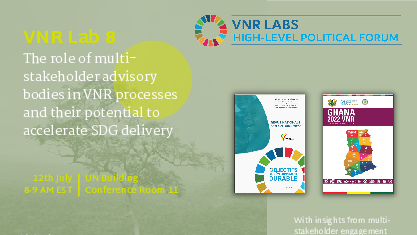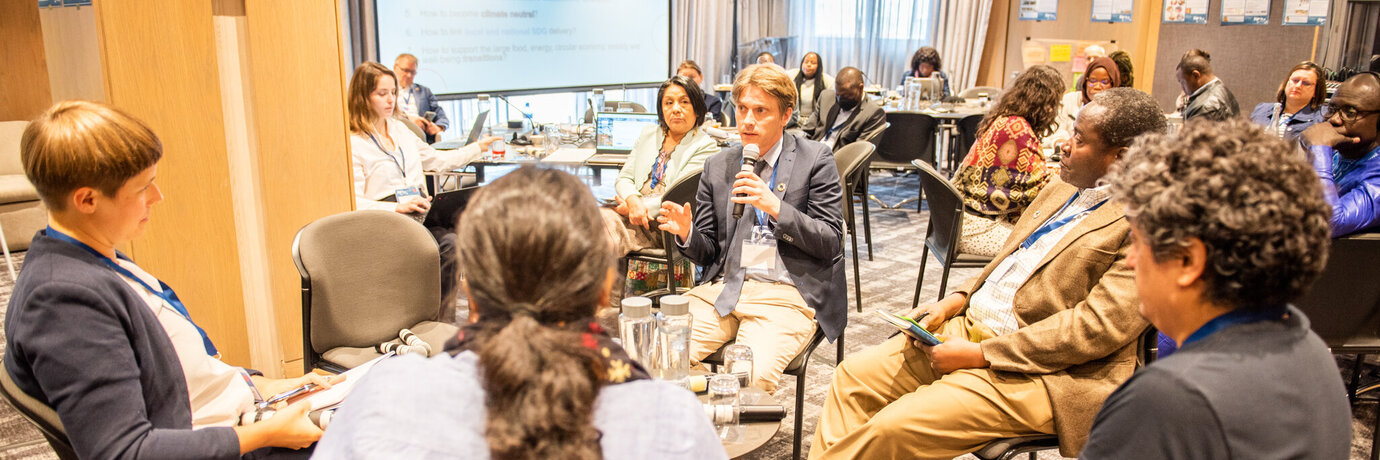VNR Lab on the role of multi-stakeholder advisory bodies in VNR processes and their potential to accelerate SDG delivery
With insights from multi-stakeholder engagement in Germany's, Ghana's, and Senegal's Voluntary National Review processes.
You can register for the event here!
RegistrationMedia

Further information
This VNR Lab will focus on various national stakeholder engagement formats for delivering the 2030 Agenda and contributing to VNR drafting processes with society as a whole. These formats can often constitute central components of national governance architectures and are highly context dependent. They therefore vary accordingly in their set-up, mandate, and role. If institutionalized as multi-stakeholder advisory bodies, they can support navigating the complex challenges in times of multiple crises and transformation.
With insights from various countries, we will debate the following key questions:
- How can VNR stakeholder engagement processes be translated into permanent national multi-stakeholder institutions and vice versa?
- What prerequisites are needed for permanent and inclusive multi-stakeholder engagement formats?
- How can established stakeholder structures support the acceleration of SDG delivery, by e.g., creating momentum for national SDG strategies and progress in their implementation?
Institutionalized multi-stakeholder engagement platforms, in one form or another, hold the potential of facilitating the mediation of conflicting interests, building consensus across stakeholders to achieve joint positions, and thereby developing solutions accepted by society as a whole. During this VNR-Lab, we will debate these assumptions and questions based on insights from countries and their 2022 VNR stakeholder engagement processes. Moreover, we will also look back at VNR engagement processes from countries that presented their VNR in 2021 and discuss where they stand today, in order to prepare for future VNR drafting processes.

